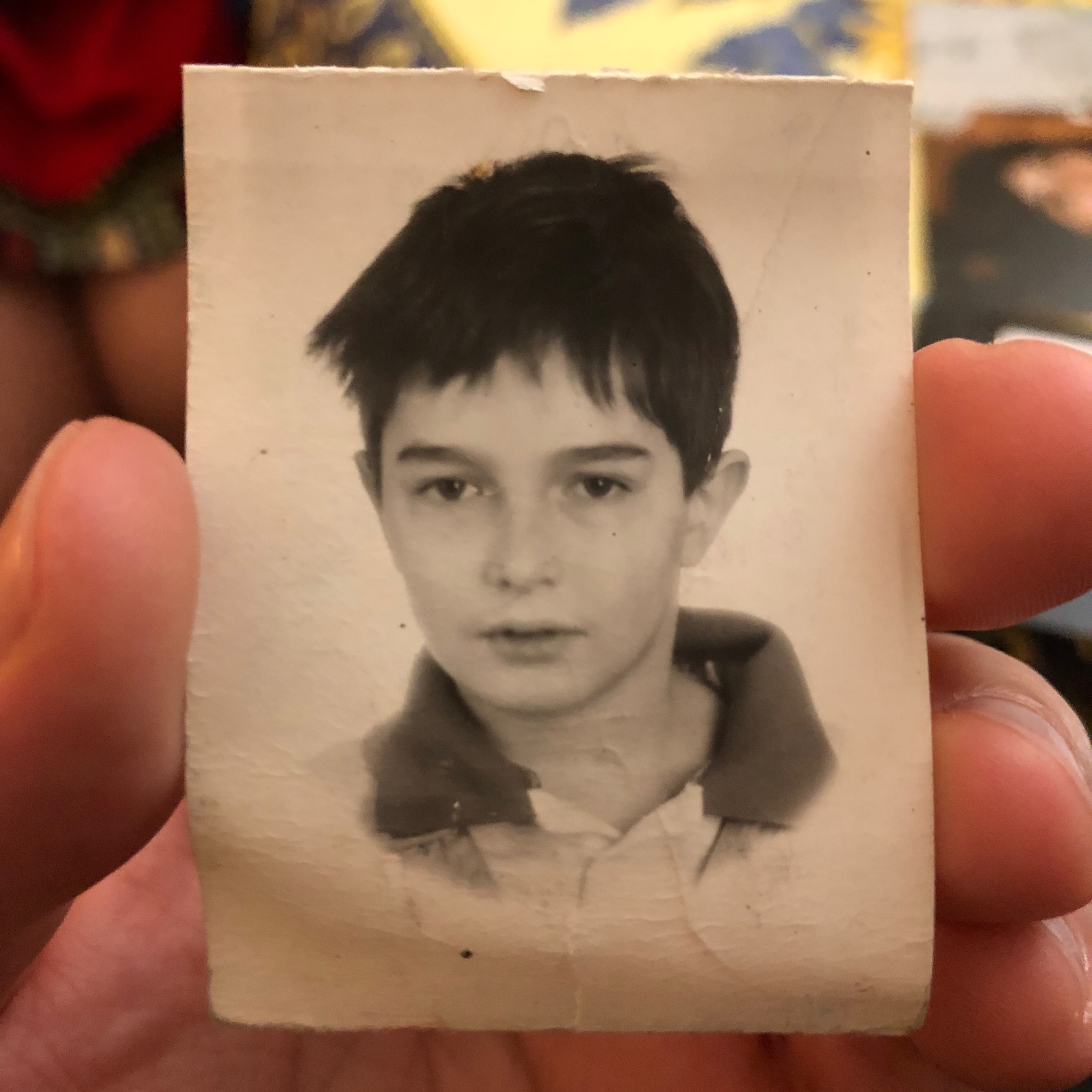Back to my name

In July of 2022, I changed my name in a large part of my online presence. I started using the name Gosha, instead of Gueorgui, the name I had used for over twenty-two years. For me, this was a significant, public step in a much wider process of healing.
I was born in Russia, and named Георгий (the Russian variation of George, which can be rendered as Gueorgui in Latin script) after a great-grandfather. Russian names have diminutives, much as some English names do: Robert becomes Bob, and Gueorgui becomes Gosha. For my entire childhood — to my family and friends, to teachers at school — I was Gosha. My full, legal name felt alien to me then: the domain of officialdom, little to do with my day to day life.
When I was 9, my family emigrated to France, and in all official paperwork — passport, visa, etc. — I was “Gueorgui” (the French-specific transliteration of Георгий). My parents, however, without giving it much thought, registered me in school as “Gosha”. For an immigrant kid, struggling to fit into a foreign society, this inconsistency created an abundance of embarrassing situations: teachers asking me to explain the difference between my names in front of the class, school paperwork that needed to have my name changed to match other documents, etc. I hated and resented the experience, and, faced with the confusion of being pulled between cultures and the overwhelming pressure to fit in, ended up projecting this frustration onto my name.
When I registered for university, I insisted on using my “passport” name everywhere. This created its own weirdness: I was Gosha to family and friends I had made before graduating high school, and Gueorgui to everyone I met after. I was, however, glad to be (mostly) rid of what I took to be the source of my suffering: my childhood name.
I did not know it at the time, but in giving up that name, and with it the identity I grew up with, I was, in a way, trying to make myself more acceptable. Being an immigrant, dependent on the goodwill of your host country, means living with a constant baseline dread — of being deemed too something, or not enough something else, and as a result: rejected, kicked out, made to “go back”. In the early years, where annual visa renewals contribute to a keen feeling of constantly being on probation, this anxiety is particularly strong, and taking on a name that, for all its alienness to me, had the advantage of matching the contents of my passport went a long way to soothe it.
Beyond the challenges of adapting to a new culture, my childhood name was linked to the other side of the immigrant experience. It connected me to a home I had lost, and to a culture from which I became more and more distant, but that was, inescapably, an important part of me. Giving up these connections in the service of fitting in and numbing feelings of discomfort was much more accessible to my teenage self than doing the work of grieving, but it was a lost opportunity as well, a missed chance to build emotional resilience.
It took me years, many conversations with my brilliant partner, and therapeutic work, to begin the process of unlearning the coping strategies I have developed at that age, and to start paying close attention to how I actually feel when discomfort is involved. As I entered a new phase of life with the birth of my daughter, it was important for me to do the work needed to live as close to my personal truth as I could manage, and it felt right, as a part of this process, to call myself Gosha again — a suitable name for the version of me that accepts and welcomes his whole self.
A year has passed, and, as I slowly informed friends and acquaintances of the change in my preferred name, I was met with overwhelming love and support, as well as positive curiosity, which led to conversations that, in turn, became this post. It was a pain to change my usernames (and to migrate to a new domain for this website!), but that was a small price to pay for the decreased cognitive dissonance, and the increased sense of agency over my life.
This experience and these struggles are not unique to me. In the last two years, through anti-war activism, I met a few Russian, Ukrainian, and other East European emigrants, and swapped stories — this is familiar territory for a lot of us. If it is for you as well, and you would like to talk: I would love to hear from you.
I would like to express my gratitude to Bruce Layman, Vlad-Ștefan Harbuz, and Devine Lu Linvega for their generous help in editing this post.